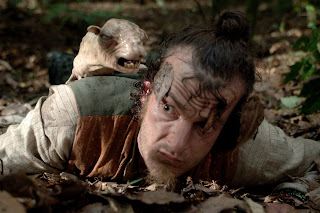.jpg)
Black Sheep (Jonathan King): Sure, there's a faint semblance of social commentary in this lurid tale of genetic engineering gone awry. Both rapacious capitalists and clueless animal-rights activists come in for equal helpings of scorn. But that's not why this film is a hilarious delight. It's all about the blood and guts, and this one delivers plenty. Peter Jackson's W.E.T.A. special effects house supplied them, and this film recalls the broad anarchic splendor of Jackson's own early films. This is the sort of film the term "midnight movie" was made for. Make sure to see it with as large and raucous a crowd as possible. The final sight gag is priceless, and you'll never look at a moving herd of sheep in quite the same way again. A cautionary tale, to be sure, this film illustrates the pitfalls of loving your farm animals a little too much.
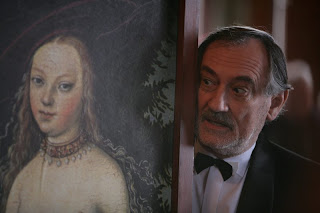.jpg)
Two in One (Kira Muratova): The Ukrainian auteur returns to the binary structure of her earlier film The Aesthenic Syndrome with two connected stories by separate screenwriters: the first concerns an actor's suicide during rehearsals for a play, and the second is the play that the actors perform. Muratova's stylistic hallmarks are in full force: the maddening repetition of dialogue and other elements, most notably the dead actor's ringing cell phone; the circus-like atmosphere of the actors' bizarre behaviors. Muratova is an acquired cinematic taste, to be sure, and her films often seem designed to test the viewer's patience. And judging from the walkouts at this morning's press screening, many will fail miserably. I was often mesmerized, although the first hour is admittedly sometimes a struggle to get through.
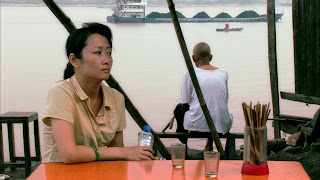.jpg)
Still Life (Jia Zhang-ke): Jia once again proves himself to be one of the half-dozen best filmmakers on the planet. Against the backdrop of the Three Gorges Dam project, which has displaced many people, and stands as a potent metaphor for the massive steamroller of China's inexorable economic progress (if you want to call it that), two people separately search for their long-estranged spouses. Loss permeates this intensely sad and beautiful film. The first searcher goes back to his hometown and his guide points to a thin island on the water, telling him that's what's left of the street where he grew up. All the characters experience firsthand the impermanence of their existence, and many await the inevitable spray-painted sign on their home: "OK For Demolition." Jia's regular actress Zhao Tao delivers an expertly delicate and moving performance, as she looks for her husband. The film, however, is not without humor or a sense of hope. A Chow Yun-fat imitator and a young boy smoking cigarettes and singing loud, plaintive love songs add levity. Jia also adds some nice fantasy touches as well. A must see, and more than worth your $18 ticket.
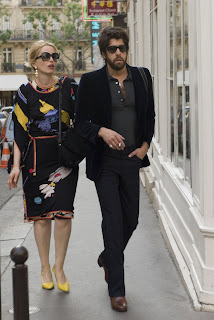.jpg)
2 Days in Paris (Julie Delpy): This would-be romantic comedy came off as even more insufferable than it would have if I hadn't seen it after Jia's masterful film. This film is the polar opposite, with a strained and often quite nasty sense of humor. Outside of a few chuckles from Delpy's costar Adam Goldberg (who apparently improvised much of his dialogue), this is an ineptly made and quite unattractive film that panders way too often to a film festival crowd that likes to consider itself sophisticated and superior. A scene with a bunch of Americans wearing Bush-Cheney T-shirts is a typical example of Delpy's propensity for cheap targets and easy laughs. Delpy only succeeds here in inviting unfavorable comparisons with Before Sunrise and Before Sunset. With films such as Jia's and others in the festival which grapple with, literally, life and death issues, the spectacle of privileged white people whining about their incredibly trivial problems seems almost obscene.

.jpg)
.jpg)
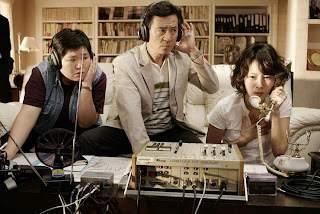.jpg)







